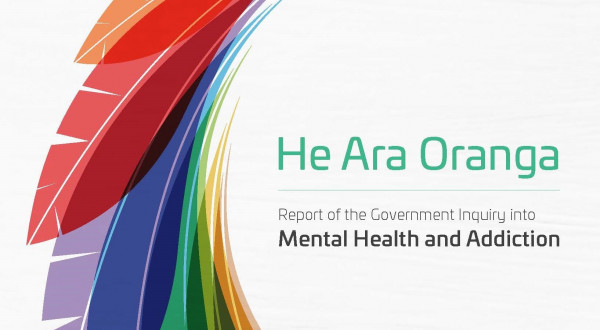He Ara Oranga

How does the latest Inquiry,
He Ara Oranga, report on prejudice and discrimination against experiences of
mental distress?
The Report of the Government Inquiry into Mental Health and Addiction, released on 4 December, made 40 recommendations.
These recommendations were made across a wide spectrum: from social wellbeing, to mental health promotion and prevention, to responses to people living with severe mental distress.
The report places work to counter stigma and discrimination within the mental health promotion and prevention space.
The Inquiry panel mentioned the impacts of discrimination several times:
- “...numerous submissions described the impact of discrimination on the basis of mental health status”, in the wider community and in mental health services
- People who feel doubly discriminated against – because of their ethnicity, disability or gender identity in particular – reported that they did not feel safe accessing mental health services (p43)
- People are reluctant to seek help “for fear of encountering negative attitudes from health professions and being subject to restraint, seclusion, the removal of their children, separation from family, loss of employment and suspension of human rights” (p62).
The report mentioned several initiatives and work carried out to counter discrimination against experiences of mental distress, noting that:
- New Zealand has “a history of successful anti-stigma initiatives” (p68)
- While many of the social determinants of mental distress and addiction lie outside the health sector, some promotion and prevention interventions target mental health and wellbeing specifically, including “measures to counter mental health and addiction stigma and discrimination” (p152)
- The Health Promotion Agency played a role in the Like Minds, Like Mine programme, and that the programme was successful in changing community attitudes (p154)
- “While many submitters praised national campaigns such as Like Minds, Like Mine for shifting thinking about mental health, more targeted destigmatisation and mental health promotion programmes are needed for marginalised groups” (p155).
The Report concluded that greater central leadership is needed for mental health promotion and prevention, and that, with this infrastructure in place, the panel “supports significantly more investment in this area, including customised responses at a local level” (p156).
The Report's final recommendations to the Government were:
- To establish a clear locus of responsibility for social wellbeing within central government, to provide strategic and policy advice, and to coordinate cross-government responses to “prevention activities” (Rec.16)
- To give the new Mental Health and Wellbeing Commission functions oversight of mental health promotion and prevention, and to develop an investment and quality assurance strategy for this area (Recs 18 and 19).
Learn more
Download the full report.
Watch a short animation explaining the report in brief.
